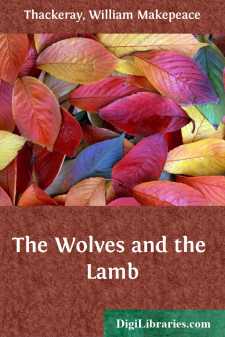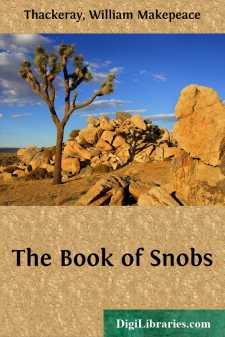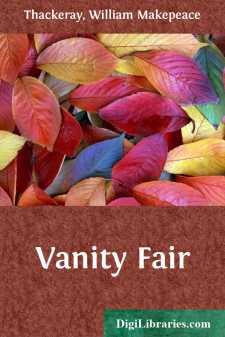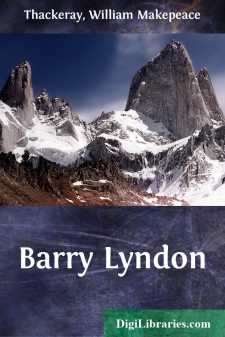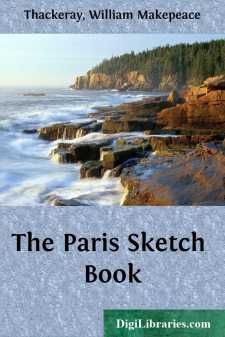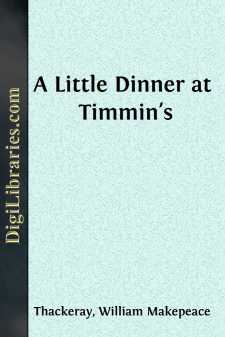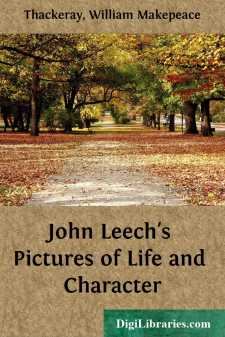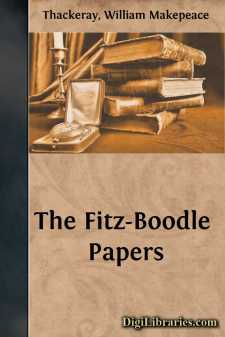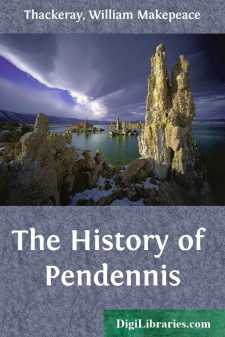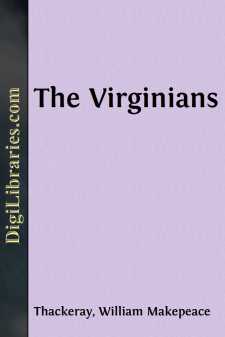Categories
- Antiques & Collectibles 13
- Architecture 36
- Art 48
- Bibles 22
- Biography & Autobiography 813
- Body, Mind & Spirit 142
- Business & Economics 28
- Children's Books 17
- Children's Fiction 14
- Computers 4
- Cooking 94
- Crafts & Hobbies 4
- Drama 346
- Education 46
- Family & Relationships 57
- Fiction 11829
- Games 19
- Gardening 17
- Health & Fitness 34
- History 1377
- House & Home 1
- Humor 147
- Juvenile Fiction 1873
- Juvenile Nonfiction 202
- Language Arts & Disciplines 88
- Law 16
- Literary Collections 686
- Literary Criticism 179
- Mathematics 13
- Medical 41
- Music 40
- Nature 179
- Non-Classifiable 1768
- Performing Arts 7
- Periodicals 1453
- Philosophy 64
- Photography 2
- Poetry 896
- Political Science 203
- Psychology 42
- Reference 154
- Religion 513
- Science 126
- Self-Help 84
- Social Science 81
- Sports & Recreation 34
- Study Aids 3
- Technology & Engineering 59
- Transportation 23
- Travel 463
- True Crime 29
William Makepeace Thackeray
William Makepeace Thackeray was an English novelist and satirist, best known for his novel "Vanity Fair," which offers a scathing critique of early 19th-century British society. Born on July 18, 1811, in Calcutta, India, Thackeray's works often explored themes of social climbing and hypocrisy. His wit and keen observations made him one of the leading literary figures of the Victorian era.
Author's Books:
Sort by:
THE WOLVES AND THE LAMB. ACT I. Scene.—MILLIKEN'S villa at Richmond; two drawing-rooms opening into one another. The late MRS. MILLIKEN'S portrait over the mantel-piece; bookcases, writing-tables, piano, newspapers, a handsomely furnished saloon. The back-room opens, with very large windows, on the lawn and pleasure-ground; gate, and wall—over which the heads of a cab and a carriage are...
more...
(The necessity of a work on Snobs, demonstrated from History, and proved by felicitous illustrations:—I am the individual destined to write that work—My vocation is announced in terms of great eloquence—I show that the world has been gradually preparing itself for the WORK and the MAN—Snobs are to be studied like other objects of Natural Science, and are a part of the Beautiful (with a large...
more...
BEFORE THE CURTAIN As the manager of the Performance sits before the curtain on the boards and looks into the Fair, a feeling of profound melancholy comes over him in his survey of the bustling place. There is a great quantity of eating and drinking, making love and jilting, laughing and the contrary, smoking, cheating, fighting, dancing and fiddling; there are bullies pushing about, bucks ogling the...
more...
A BIBLIOGRAPHICAL NOTE Barry Lyndon—far from the best known, but by some critics acclaimed as the finest, of Thackeray's works—appeared originally as a serial a few years before VANITY FAIR was written; yet it was not published in book form, and then not by itself, until after the publication of VANITY FAIR, PENDENNIS, ESMOND and THE NEWCOMES had placed its author in the forefront of the...
more...
DEDICATORY LETTER TOM. ARETZ, TAILOR, ETC.27, RUE RICHELIEU, PARIS.SIR,—It becomes every man in his station to acknowledge and praise virtue wheresoever he may find it, and to point it out for the admiration and example of his fellow-men. Some months since, when you presented to the writer of these pages a small account for coats and pantaloons manufactured by you, and when you were met by a...
more...
Mr. and Mrs. Fitzroy Timmins live in Lilliput Street, that neat little street which runs at right angles with the Park and Brobdingnag Gardens. It is a very genteel neighborhood, and I need not say they are of a good family. Especially Mrs. Timmins, as her mamma is always telling Mr. T. They are Suffolk people, and distantly related to the Right honorable the Earl of Bungay. Besides his house in...
more...
We, who can recall the consulship of Plancus, and quite respectable, old-fogyfied times, remember amongst other amusements which we had as children the pictures at which we were permitted to look. There was Boydell's Shakspeare, black and ghastly gallery of murky Opies, glum Northcotes, straddling Fuselis! there were Lear, Oberon, Hamlet, with starting muscles, rolling eyeballs, and long pointing...
more...
CHAPTER I. THE ALBUM—THE MEDITERRANEAN HEATH. Travelling some little time back in a wild part of Connemara, where I had been for fishing and seal-shooting, I had the good luck to get admission to the chateau of a hospitable Irish gentleman, and to procure some news of my once dear Ottilia. Yes, of no other than Ottilia v. Schlippenschlopp, the Muse of Kalbsbraten-Pumpernickel, the friendly little...
more...
PREFACE If this kind of composition, of which the two years' product is now laid before the public, fail in art, as it constantly does and must, it at least has the advantage of a certain truth and honesty, which a work more elaborate might lose. In his constant communication with the reader, the writer is forced into frankness of expression, and to speak out his own mind and feelings as they urge...
more...
CHAPTER I. In which one of the Virginians visits home On the library wall of one of the most famous writers of America, there hang two crossed swords, which his relatives wore in the great War of Independence. The one sword was gallantly drawn in the service of the king, the other was the weapon of a brave and honoured republican soldier. The possessor of the harmless trophy has earned for himself a...
more...


